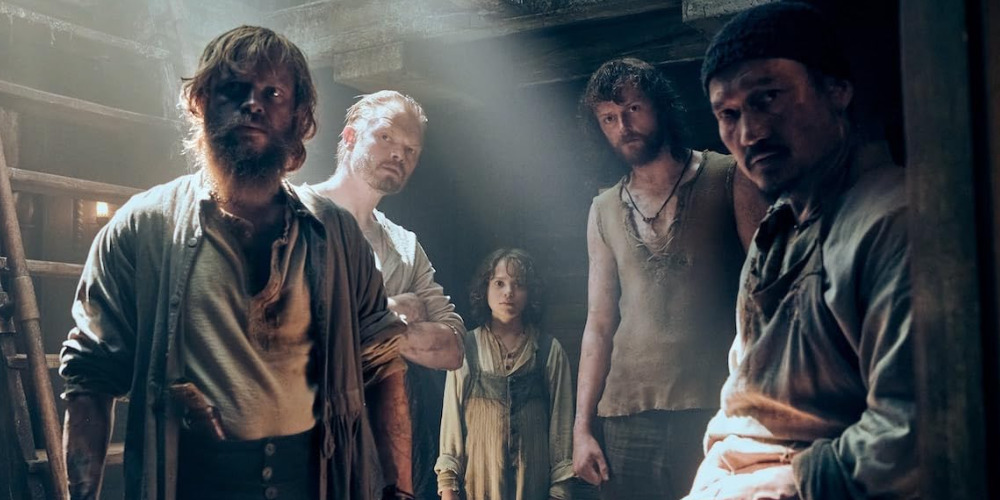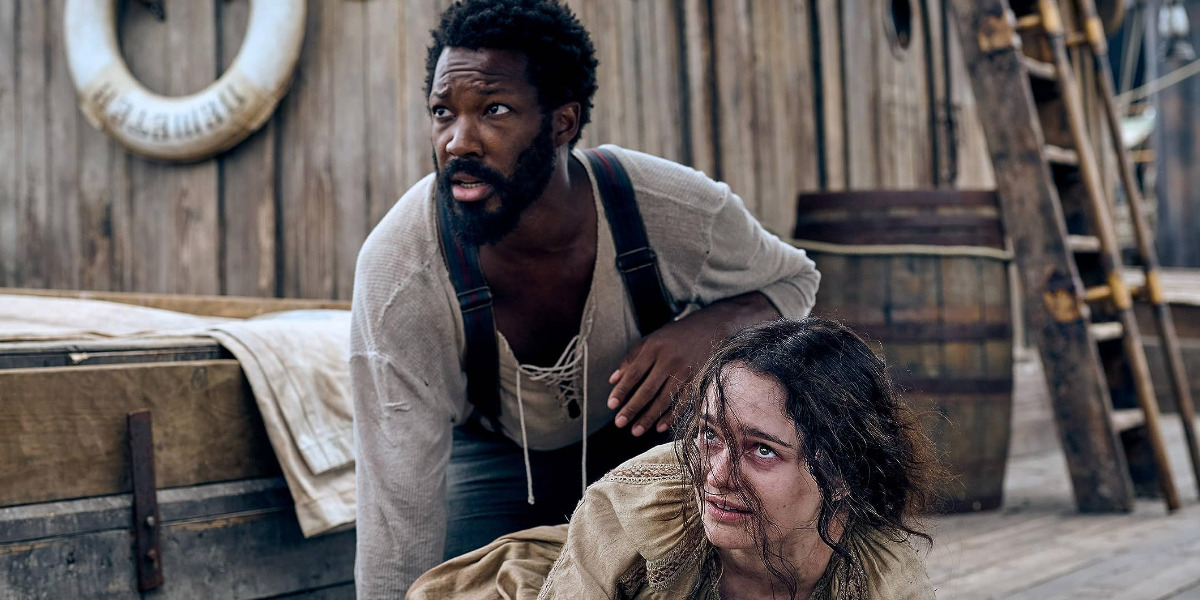Directed by André Øvredal, ‘The Last Voyage of the Demeter’ is a fantasy horror film that marks the cinematic iteration of one of the more shadowed moments of Dracula’s story. In 1897 the Demeter vessel, a merchant ship, charts its path from Transylvania to London carrying cargo and crew. Helmed by Captain Elliot and his first mate Wojchek, the ship is populated with a handful of people, including stowaway Anna and Doctor Clemens. On the voyage, the crew faces unimaginable horror when they learn of a wicked presence between them: a deadly vampire known as Dracula.
The film depicts an epic tragedy in a fight for survival and delves into the origin of Dracula in a more innately monstrous light. Despite the film’s fantastical narrative heart, its period setting distinctly grounds the story in reality and imbues the world with a sense of realism. Due to the same, viewers must be curious about the inspiration behind this film and its roots in true historical events.
Demeter’s Story: From Stoker to Screen
‘The Last Voyage of the Demeter’ is not based on a true story. The film is based on Bram Stoker’s 1897 novel ‘Dracula,’ chapter seven titled “The Captain’s Log.” Consequently, given ‘Dracula’s’ fictitious nature, the film, itself alongside the ship Demeter and its voyage, is also a work of fiction. The story behind the film’s production is almost as extensive as the material, with multiple directors and actors temporarily onboarding the project before parting ways with it. More than a decade in the making, the film finally found its footing with director André Øvredal with a screenplay by Bragi F. Schut and Zak Olkewicz.

Schut first got the idea for the story after befriending a model maker in Hollywood who showed him his portfolio, which contained miniatures from several movies, including Demeter from ‘Bram Stoker’s Dracula,’ directed by Francis Ford Coppola. From there, Schut, who has always wanted to do a space horror film reminiscent of ‘Aliens,’ found his inspiration for an ‘Aliens’-type story that was an original idea. Setting his film in the past on a boat, Schut found his ideal horror setting plagued by one of the most infamous monsters in literature and cinema, Dracula himself. Stoker’s ‘Dracula’ has been adapted to the screen a number of times.
Even so, Schut found the ability to explore a facet of the character that many may find refreshing by focusing on Dracula’s story during Demeter’s voyage. Still, adapting a singular chapter into a feature-length movie came with its own complications. The writer discussed the same in an interview with Bloody Flicks and said, “I tried to construct the story so that it wouldn’t violate what was in the book,” said Schut. “There are these journal entries told from the perspective of the Captain, and I wanted to try to preserve those. But in expanding one tiny chapter into an entire movie, I also knew that I had to expand and invent a bunch of new material.”
As such, Schut carefully employed ample creative liberty whenever necessary while still remaining as accurate to the source material as possible. Similarly, the film’s utilization of special effects for constructing the building blocks of the film also imbues it with a timeless, realistic appeal. Lastly, Dracula’s character, who is at once the film’s antagonist and protagonist, centers the narrative, informing its crucial aspects. Over the years, audiences have gotten used to seeing several versions of Dracula that all have a few traits in common. However, this film takes a different approach and presents a distinctive yet authentic approach to his character.
“Our Dracula was not a classical, sexy guy, so for me, it was good to try something different, something heavier,” said actor Javier Botet, who embodies Dracula in the film. “It’s like a horror-action movie, so let’s make something new. We can make something beautiful. What’s so beautiful about discovering that is not only action— there’s a base of humanity or emotions in the creature. Does he start feeling weak, feeling alone, and now he needs to survive.”
Likewise, director Øvredal shared similar sentiments while discussing the process behind bringing his own iteration of Dracula to life while still staying true to Stoker’s vision. In a conversation with Screen Rant, the filmmaker said, “I was very preoccupied with making sure that we’ve never really seen this version because I try to strive for originality as much as I can. It’s so hard, but that has to be the aim and the goal always.” Therefore, the conclusion remains: ‘The Last Voyage of the Demeter’ is not based on a true story. Instead, it’s only an adaptation of one of the most famous literary classics ‘Dracula.’
Read More: Best Dracula Movies and TV Shows


You must be logged in to post a comment.